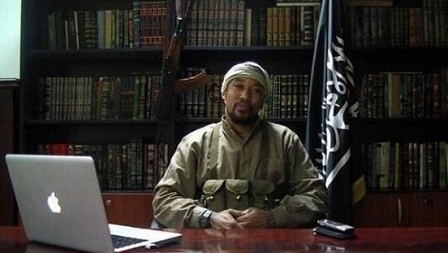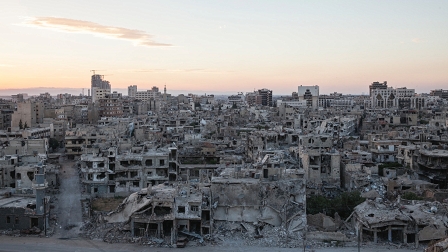Erstellt am: 26. 1. 2016 - 10:47 Uhr
The Death Trip - Part 1
Bode37 ist im Sommer aus Syrien geflohen, wo er als Lehrer gearbeitet hat. Für uns erzählt er von seiner Flucht aus Latakia. Hier der erste Teil seiner Erinnerungen. Er heißt natürlich nicht wirklich so; aus Sicherheitsgründen bevorzugt er für seine Geschichte ein Pseudonym.
Memories haunting Bode 37
- Part 1: I will tell you a story about my country, about Syria, whose war has stolen most of her children.
- Part 2: Paradise Lost, the pain of leaving home
- Part 3:Assad calling the ghosts of war and the tale of the two Colonels.
- Part 4: Goodbye in the darkest of nights.
- Part 5: Passing checkpoints one by one and finally leaving Syria.
- Part 6: The camp in the woods.
The beautiful river is kissing the tender cold wind, little waves are dancing. This is the lovely view of one mild October day, which I enjoy with my friend sitting at the river bank of the Landwehrkanal.
My friends are my new family, my Berlin family, the people who help me to experience it as a welcoming place. From the beginning of my exodus it was clear that the desired end of the long journey I´m going to tell you about was Berlin.
One of my closest friends, Ahmad, has been living here for two years, working as a computer specialist. He is not a refugee, he chose this life. For a long time he has expressed to me his fascination for the mix of cultures in the city. People accept each other and this tolerance creates an atmosphere of constant innovation and changes. It is a place where one can start life over and feel safe again.
Berlin is a marvelous place in terms of the visible traces of history. The smell of lead is buried under the shattered Berlin wall. At the same time you see modernity. Berlin is a sophisticated yet humanistic city. It provides everything you need for a joyful life.
As a foreigner you can spend days observing heterogenic forms of social interaction in the public space. It is a peaceful mix of ideas, cultures, lifestyles and religions. My friends and I have the luxury of a pretty careless life: we enjoy our time, have fun and get work done.
clb
For me work these days means mostly paperwork and waiting: waiting for appointments at various government institutions, sometimes for eight hours, sometimes in the rain and cold, surrounded by desperation and voices cracking with the fear of an uncertain destiny.
I just got my transfer – this allows me to stay in Berlin, to stay with my friends. I’m awaiting the date of my trial where I will hopefully be granted asylum. The faces I see in Berlin and the parts of the city I get to enjoy are very different to the experiences my Syrian sisters and brothers make, who spend harsh and isolated days waiting in the camps.
Me, I wait in a house, a private apartment that is home to diverse characters: men and women my age who sweeten my days of waiting by getting me more and more into their Berlin way of life. I still can’t believe how I came to be here. Like in an old movie, the story started at a train station in Vienna and ended in Kreuzberg.
My life in Syria was different to what is forming now out of the debris of my existence but I am not afraid of adapting because I was raised as an open-minded person and I have the capacity to accept and enjoy new ideas.
I like the efficient lifestyle in Berlin. People seem to have respect for time. You can see them commuting on the trains reading books. Most of the Berliners I have met are honest and helpful, uncomplicated and easy to get along with. Observing them gives me the power to keep going. I have to admit this efficiency of everyday life doesn’t give you the space to express your emotions and my new lifestyle with all its amazing opportunities and advantages cannot make me forget the dirty war that is still burning in my country. It burns on in my heart and soul.
My new friends integrate me into their world. Their lifestyle became mine. I go to the parties of their friends, art openings, birthdays. It is a way of life condemned by the intolerant and cruel forces that made me flee my home country.
Denis Cuspert used to live a few blocks from my new home in Berlin. He left Berlin to join the IS in my home country. He became part of the raging demon that is destroying the whole region. Denis used to make HipHop music under the name of Deso Dogg. He was probably a lost soul.

nb
I cannot understand what drove him to go to a country he didn’t know, a country that used to be my home, to kill people and claim it was in the name of Islam. What did Dennis Cuspert know about the peaceful and tolerant way we lived our religion, tolerating and respecting others’ faiths? Why did Dennis become Abu Maleeq, destroying lives and the values he claimed to fight for?
If the IS fighter Dennis Cuspert hadn’t been killed on the 16th of October 2015 in Al-Raqqa, Syria, I would have liked to have taken him for a coffee at Kotti and asked him: „Who gave you the right to kill in the name of Islam?“ The question will be on my mind for the rest of my days.
I experience sudden outbursts as a result of posttraumatic stress, just like the one on this bright October afternoon at the riverbank.
A group of young school kids with their teachers passes by. All excited, all bright and happy. They chat and wave to us. The emotional cocktail of grief and happiness at that moment is overwhelming and brings tears to my eyes. They reminded me of my life in Syria. I used to be a schoolteacher.
I was teaching pupils that all beings are equal, men and women, Muslims and Christians, rich and poor. I lived with them until 2012, the year of their graduation. Then I moved back to my hometown Latakia, I met other students but my first students are never going to be forgotten. I still see their faces and I often wonder where they are today.

nb
My friends notice my change of mood and ask me what caused it. “OK my dear friends”, I say, “it´s a long story, so listen carefully because I will tell you a story about my country, about Syria, whose war has stolen most of her children. Syria is my screaming soul, my eternal pain. What can I tell you about the lovely mother of Syrians; as we would call it in Arabic, a place that is now a bleeding wound?“

